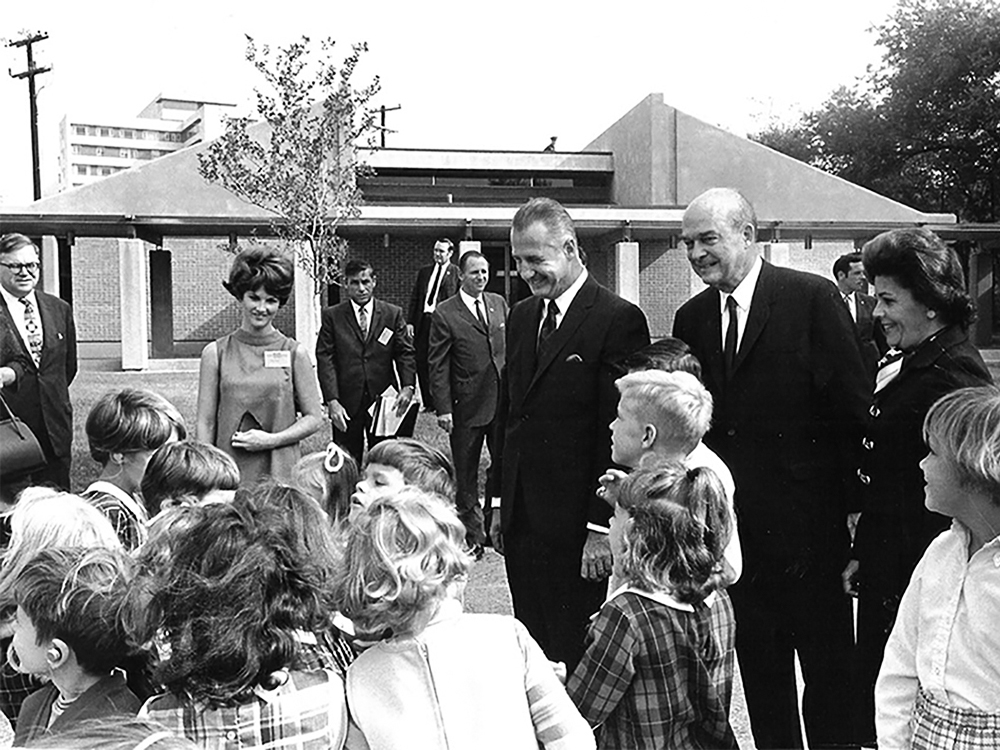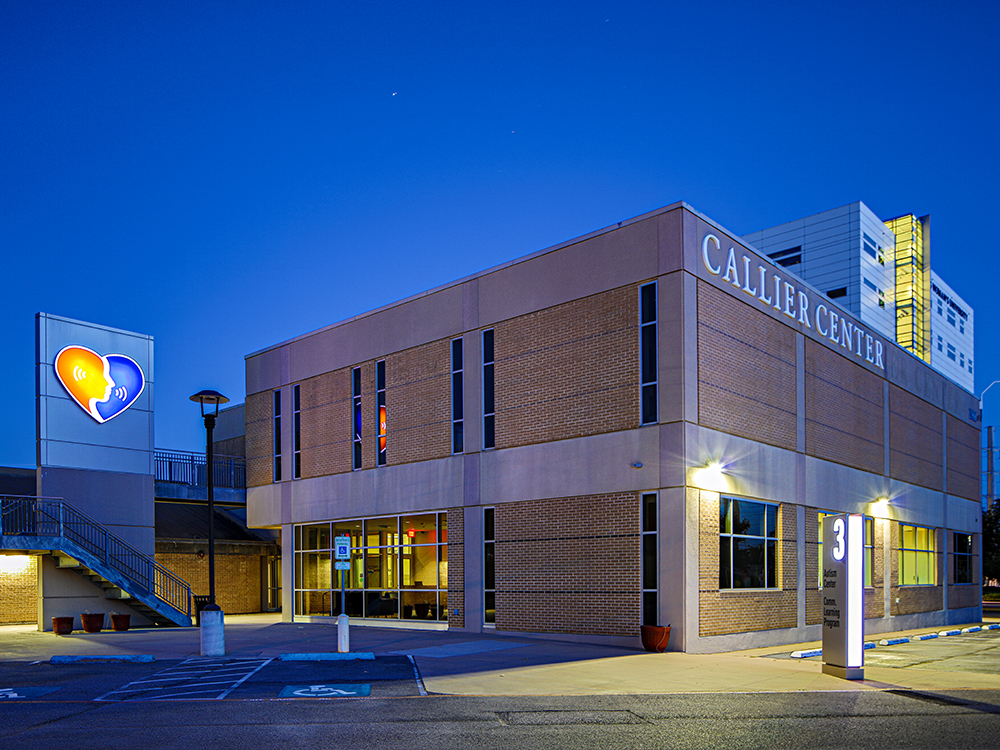Erik Jonsson’s Visionary Phone Call
 Vice President of the United States Spiro T. Agnew (center left), and UTD founder and Dallas mayor Erik Jonsson (center right) meet with children during the dedication of the Callier Hearing and Speech Center in 1969.
Vice President of the United States Spiro T. Agnew (center left), and UTD founder and Dallas mayor Erik Jonsson (center right) meet with children during the dedication of the Callier Hearing and Speech Center in 1969.
Before it was ever affiliated with The University of Texas at Dallas, the Callier Center for Communication Disorders – like many things at UTD – owes its start, in part, to Erik Jonsson.
The Dallas mayor from 1964 to 1971 is known for co-founding and leading Texas Instruments Inc. as president. He also is one of the trio of visionaries from TI that saw the need to entice promising young Texans leaving the state to pursue graduate education elsewhere to instead enroll at the new Graduate Research Center of the Southwest, which would eventually become UT Dallas.
But, back to Callier. A decade before the world-acclaimed Callier Center would join UT Dallas, Jonsson, who himself required hearing aids due to a mastoid surgery as a youngster, made a phone call to Dr. Aram Glorig and asked him to come to Dallas. Lena Callier, who had died in 1957, had created a trust for the purpose of alleviating the effects of hearing loss, a problem that affected her personally. Jonsson wanted Glorig to come to Dallas “to establish a center for children and adults, to carry out research and care for those with hearing loss,” according to a June 1993 editorial in the journal Otolaryngology-Head and Neck Surgery.
At the time, Glorig had already had a distinguished career. Born in England in 1906, he and his parents settled in the U.S. Glorig graduated from Loma Linda University Medical School in 1938 and embarked on a pediatric residency where he encountered children with ear problems, which prompted his specialization in otolaryngology.
 Dr. Aram Glorig
Dr. Aram Glorig
He enlisted in the Army during World War II and noted how many servicemen in London, where he was stationed, suffered severe hearing losses from the bombings.
After his service ended, he joined Yale University and was soon asked by the Surgeon General to develop a center at Walter Reed Army Hospital to care for returning servicemen suffering from hearing impairment. He eventually became director of the Audiology and Speech Correction Center for the Veterans Administration. He left the VA in 1953 and moved to the University of Southern California, where Jonsson found him in 1962.
Glorig moved to Dallas after Jonsson’s phone call and became the founding director of the Callier Center in 1964. The new Callier Hearing and Speech Center was dedicated in 1969 – coinciding with the birth 50 years ago of UT Dallas, although not yet affiliated with the university in any way other than Jonsson’s involvement with both. Vice President Spiro Agnew attended the dedication.
In 1975, the Callier Center for Communication Disorders, as it is now called, became a component of UT Dallas.
 The Dallas campus of the Callier Center for Communication Disorders.
The Dallas campus of the Callier Center for Communication Disorders.
But just prior to that time, Dr. Ross Roeser joined the Center in 1972. His research interests were in the application of hearing instrument technology to improve communication skills, and he oversaw the development of the cochlear implant program at Callier. He served as executive director of the Center from 1988 to 2006. He is now executive director emeritus.
Roeser, who is also the Howard B. and Lois C. Wolf Professor of Pediatric Hearing at UT Dallas, was most recently selected to receive the biennial Aram Glorig Award, presented by the International Society of Audiology.
He will travel to Warsaw, Poland, in spring 2020 to accept the award named in honor of his “boss.”
“He was a powerhouse,” Roeser said of Glorig. “He had a broad vision about what Callier should be, in terms of providing services to those with communication disorders, particularly to children who are deaf, having outstanding educational programs for the clinicians of the future and fostering cutting-edge research.
“Receiving an award named after somebody who was so influential in my life as well as at the UT Dallas Callier Center is a special honor.”
Surely, Jonsson would be proud as well.
–Heidi Harris Cannella



